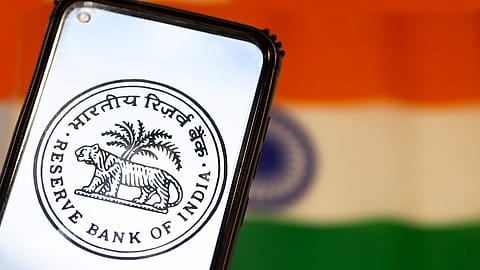Moody's gives thumbs up to RBI's new risk weights on personal loans
In the past two years, personal loans grew around 24% and credit card loans grew 28% compared with the overall banking sector's credit growth of around 15%.

Moody's Investors Service on Monday said the Reserve Bank of India's (RBI's) move to raise risk weights on unsecured personal loans and credit cards by banks and non-bank finance companies (NBFCs) is credit positive.
The banking regulator last week hiked the risk weights of consumer credit exposure of banks and NBFCs by 25 percentage points to 125% after RBI governor Shaktikanta Das flagged the high growth in consumer credit and increasing dependency of NBFCs on bank borrowings.
A hike in risk weight means that banks and NBFCs will need to set aside more capital for such loans, therefore raising the cost of capital and potentially leading to higher interest rates.
The tightening of underwriting norms through higher risk-weighted assets is credit positive because lenders will need to allocate higher capital for such loans improving their loss-absorbing buffers, the credit rating agency says.
Moody's, however, says it may dampen their growth appetite. The unsecured segment has been growing very rapidly in the past few years, exposing financial institutions to a potential spike in credit costs in case of sudden economic or interest rate shocks.
Over the past few years, India's unsecured lending segment has become very competitive with banks, NBFCs and fintech companies, including several new entrants, aggressively growing loans in this category. In the past two years, personal loans grew around 24% and credit card loans grew 28% on average compared with the overall banking sector's credit growth of around 15%.
Several NBFCs, which until now focused on secured lending categories such as infrastructure, real estate and vehicle loans, have also pivoted to these riskier segments. "The net interest margins for such loans are also declining because of steep competition. Several banks and NBFCs are sourcing unsecured loans through fintech companies' apps. However, fintechs' loan origination and collection models are largely untested and could expose the NBFCs and banks to asset quality volatility," says Moody's.
Recommended Stories
"We expect banks would be able to absorb higher risk weights on their capital because the overall banking sector's exposure to unsecured retail credit is small at around 10% of loans as of September 2023 and the sector's overall capitalization is at historically high levels with a Common Equity Tier 1 ratio of 13.9% as of March 2023," the rating agency says, adding that the impact of the new underwriting rules could vary among individual lenders depending on their exposure to unsecured loans.
"The higher risk weights will be applicable to NBFCs which until now benefitted from risk weights below 100% because of their higher domestic ratings. However, the strain from higher risk weights will be moderate because it will not be applicable to loans extended for housing finance and priority sectors such as agriculture and micro, small and medium enterprises, among others," says Moody's.